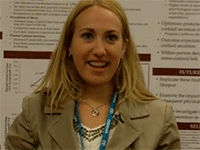From: The Chronicle of Higher Education
Scientists Look to Genetics of Behavior for Answers to Country’s Partisan Divide
The Chronicle of Higher Education:
Scientific analysis has been able to solve the mysteries of polio and smallpox, heavier-than-air flight, the structure of atoms, and millions of other longstanding puzzles of nature. Could it now be used to diagnose and perhaps even solve our nation’s political dysfunction?
There are grounds for some optimism. A new generation of university researchers, many with backgrounds in psychology, are tackling the question, armed with new findings involving behavioral genetics.
The leaders include John T. Jost, a professor of psychology at New York University who has found that aversion to ambiguity, a sense of threats, and disgust are often traits of conservatives, and John R. Hibbing, a professor of political science at the University of Nebraska at Lincoln who has connected those traits to genetic origins.
A key development was a 2005 paper in the American Political Science Review, written by John R. Alford of Rice University, Carolyn L. Funk of Virginia Commonwealth University, and Mr. Hibbing, which estimated that genetic factors account for about 32 percent of a person’s political ideology. Heredity had previously been considered a minor factor.
Read the whole story: The Chronicle of Higher Education
More of our Members in the Media >




APS regularly opens certain online articles for discussion on our website. Effective February 2021, you must be a logged-in APS member to post comments. By posting a comment, you agree to our Community Guidelines and the display of your profile information, including your name and affiliation. Any opinions, findings, conclusions, or recommendations present in article comments are those of the writers and do not necessarily reflect the views of APS or the article’s author. For more information, please see our Community Guidelines.
Please login with your APS account to comment.